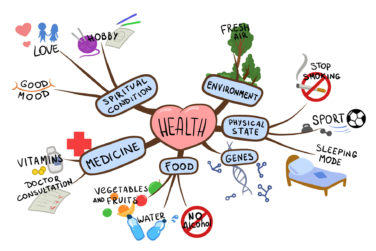Life science companies want to be close to patients for many reasons: Employees are more productive if they find purpose in their work. Patient centricity leads to happier customers who are more likely to stay true to their prescribed treatment regimen. And drug makers can develop an understanding of consumer needs. But pharma-patient encounters don’t happen automatically.
The key enabler is authenticity—being trustworthy and genuine, doing the right thing, building relationships, vulnerability, knowledge and reciprocity. We want to learn how to do our job better. We want to find out what keeps patients from getting on treatment or from staying adherent. We want to do what we can to ensure people take their medication as prescribed. But first, we need to demonstrate we’re real. So what’s the best way to do that?
1. Talk with a patient voice
Authenticity means talking with patients, not to them. Pharma can share scientific and medical knowledge, but speaking from a position of authority and academia will create the exact barrier we’re trying to overcome. A better way to convey information is to let patients speak to patients—people with shared experiences as the target audience can say things in ways that matter and resonate.
We all trust testimonials and personal recommendations more than an interested party who recommends their own product or service. Healthcare is no exception. Managing a serious health condition is an important life decision which most people want to base, at least in part, on discussions with peers. Pharma can make peer-to-peer connections possible by initiating Patient Ambassador programs. When this is done really well, Ambassadors are recruited from various demographics, so every audience can hear from spokespeople who know exactly how patients and care partners with similar backgrounds deal with the disease.
2. Demonstrate that you care
Of course, as pharmaceutical marketers, we care about adherence and customer retention, but at the end of the day, we care about the wellbeing of the people we serve. So we don’t force patients into a schedule that suits us best. Some diseases demand for extra breaks, while others impair a patient’s mobility.
But explaining yourself is not the only way to build relationships. It also involves listening. In other words—it’s not all about you. Successful initiatives offer real support and add value to the treatment experience of patients. We must always ask: How can we do a better job at helping you live with your disease? What difficulties can we help you overcome?
3. Try to do as much as possible offline
Digital marketing is sexy, and it’s an effective channel when part of an overall strategy. Everybody goes on the web to research his/her disease. But we are human. There is something to be said for tangible moments, the exchange that happens when two or more people come together in one place.
Online channels come with natural limits. First, they can be “too easy.” If we truly respect and care for people, we should meet them in person, at least occasionally. Second, we miss out on a great deal of contextual information when visuals, voices, faces and body language are limited and edited. Third, not all kinds of content can go online. There’s a reason why pharma activities on social media are rare: There are strict regulatory limits to online authenticity. Truly inspiring, life-changing encounters happen live. Online channels can enhance but not replace them.
4. Stick around for the long term
Authentic relationships are, by definition, long term: We start expecting things, and we meet expectations in return. One benefit of that is a big-picture perspective through which we understand the needs not just of patients but of everyone around them. Care partners are allies in the fight for the patient’s wellbeing.
In some disease categories, care partners are the primary targets—think of Alzheimer’s, autism or pediatric diseases. Serious diseases affect those close to the patient as much as the person living with the condition. Like patients, care partners deserve a tailored approach that caters for their individual situation.
5. Use the power of stories
Our DNA contains the code for a communication format unique to our species: Storytelling. Stories function as learning and teaching tools. Our brains are predisposed to process stories much more efficiently than intellectual information that is removed from experiences related to our senses and instincts. Anecdotes beat statistical data.
fMRI studies have discovered a phenomenon called neural coupling: When a person shares a personal story, the narrator’s brain activity is mirrored by the audience’s. In other words: When you listen to stories you almost experience the narrated events yourself. The storyteller’s ideas, motivation and strategies become a part of your audience’s toolkit to deal with their own lives.
A story is much more than a chronological list of events. It’s a way to convey a deeper message that only becomes meaningful when heard in a context of events, descriptions and emotions. It has to be detailed enough to tell the “whole” story, and concise enough for the “meaning” of the story not to be watered down. It’s to achieve this delicate balancing act and to ensure regulatory compliance that professional writers should always help Patient Ambassadors compose their stories.
To authentically connect with patients, pharma has its role naturally carved out: We should be genuinely helpful and give the people we serve the tools and information they need to become their own advocates and to make smart decisions about their options. In doing so, we end up learning at least as much as we’re teaching. Patients are the most important stakeholders in our industry. Authenticity frees up their potential.







